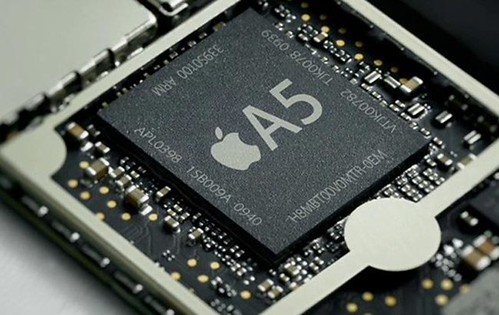
Apple’s ongoing litigation with Samsung is arguably spiraling out of control. The number of lawsuits between the two entities is constantly expanding and now spans 4 continents. At the same time, Apple is one of Samsung’s biggest customers – a fact which has obviously led to some awkward tension between the two companies.
In the wake of Apple’s allegations that Samsung is “slavishly” copying the look and feel of the iPhone and iPad, reports emerged stating that Apple was looking to Taiwan Semiconductor (TSMC) to manufacture the A5 dual core processor expected in the iPhone 5. Samsung currently manufactures the A4 chip for the iPhone 4 and the A5 chip for the iPad 2.
While more substantial reports have pointed to Apple tapping TSMC for A6 production in 2012, the upcoming dual-core A5 processor for Apple’s next-gen iPhones will reportedly still be a Samsung production.
CNET reports:
TSMC has not perfected the advanced manufacturing processes needed to make an A5 for the iPhone and, maybe more importantly, it’s prohibitively difficult to jump to a different manufacturer for the same chip design.
“They don’t have a choice. They can’t switch [from Samsung] at this stage,” said one source, familiar with the dynamics of the cell phone chip industry supply chain, referring to the A5.
In 2010 alone, Apple generated $6 billion worth of business for Samsung, purchasing everything from memory components to LCD display panels. With the litigation between the two companies now reaching epic levels – and no sign of either company backing down at all – Apple is naturally looking to take its business elsewhere.
So while the A5 production for the iPhone 5 will remain with Samsung, Apple’s A6 is likely to have a new home. What’s more, this move is said to be more than a strategic move rooted in patent litigation, but also a result of TSMC having the highest yielding 40-nm process in the foundry world along with the most 40-nm capacity. Further, Apple has reportedly been working with TSMC to move to a 28nm process, which if true, would give Apple a competitive edge.
Indeed, reports surfaced just a month ago relaying that trial production of the A6 at TSMC had already commenced.
Accordingly, TSMC has applied its newest 28-nanometer process and 3D stacking technologies to produce the next-generation processor A6, which is based on the ARM architecture and will undergo TSMC’s cutting-edge silicon interposer and bump on trace (BOT) methodologies…
The A6 will likely debut in early 2012 and the iPad 3 will likely be the first Apple product to include it.
via CNET





Tue, Sep 20, 2011
News